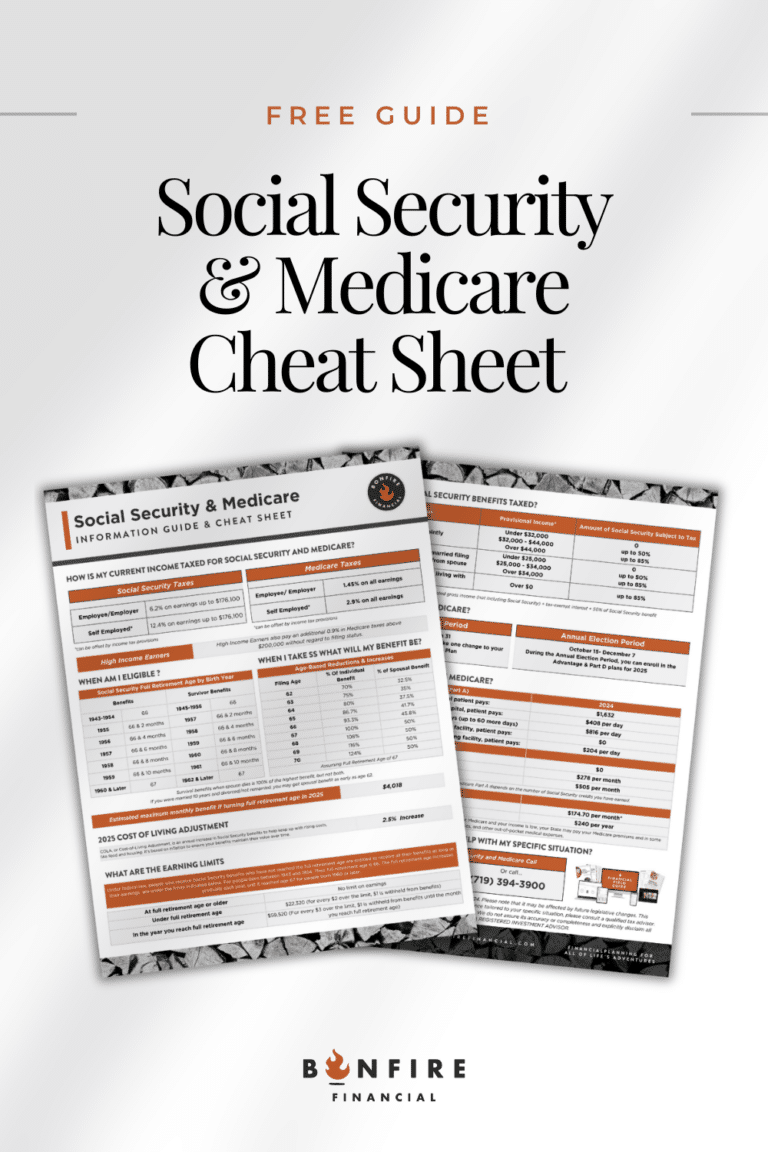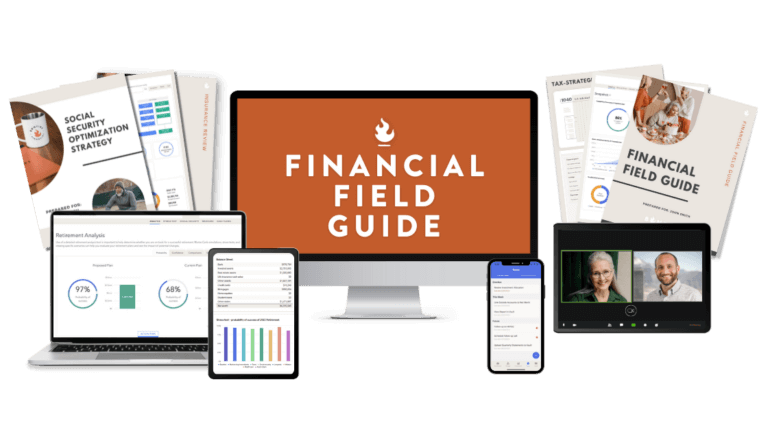The idea of early retirement is appealing to many, but for physicians, it often feels out of reach. Despite earning high incomes, many doctors struggle to step away from their careers at an earlier age. Between student loans, lifestyle inflation, and a deep sense of identity tied to their profession, the road to financial freedom isn’t always straightforward.
Yet, retiring early as a physician is possible with the right financial planning and strategic decisions. Today, we’ll explore the key challenges physicians face when planning for retirement, common pitfalls that delay retirement, and the strategies that can help make early retirement a reality.
Listen Now:
iTunes | Spotify | iHeartRadio | Amazon Music
—–
Why Many Physicians Struggle to Retire Early
1. The High-Income Trap
One of the biggest reasons many physicians delay retirement is lifestyle inflation. After years of intense schooling and residency, physicians finally reach a stage where they can afford the finer things in life—private schools, luxury homes, vacations, and expensive cars. While there’s nothing wrong with enjoying financial success, an ever-growing lifestyle requires a significant amount of savings to sustain in retirement. Many physicians unknowingly fall into the “golden handcuffs” trap—earning more but also spending more, making it difficult to build a large enough nest egg to retire early.
2. A Late Start on Saving
Unlike other high-income professionals, physicians spend their early adulthood in medical school and residency, delaying their earning years. Many don’t start earning substantial salaries until their early 30s, putting them behind in the retirement savings game compared to their peers in other fields. This means they have a shorter window to accumulate enough wealth to retire early.
3. Identity and Career Attachment
For many physicians, being a doctor isn’t just a job—it’s a core part of their identity. The idea of stepping away from medicine can feel like a loss of purpose, making retirement psychologically difficult. This attachment often leads physicians to continue working, even if they are financially capable of retiring earlier.
4. The Uncertainty of Healthcare Costs
Physicians who retire early face a major hurdle: healthcare expenses. With Medicare eligibility beginning at age 65, those who retire earlier must find alternative ways to cover health insurance, which can be costly. Without proper planning, unexpected medical expenses can quickly erode retirement savings.
Most Physicians Retire After 65
Did you know that most physicians retire after age 65? According to 2021 data from the Center for Retirement Research at Boston College, the average retirement age for men is 65, while for women, it is 62. A survey from AMA Insurance Inc. found that 58% of physicians retire after age 65. This later retirement age can be attributed to factors like financial obligations, career attachment, and the high cost of maintaining a physician’s lifestyle. Additionally, different medical specialties have varying retirement ages, with some physicians, such as primary care doctors, working longer due to steady demand and others, like surgeons, retiring earlier due to the physically demanding nature of their work.
How Physicians Can Retire Early – Physician Retirement Strategies
Retiring early isn’t about making extreme sacrifices—it’s about making smarter financial decisions. Here are the key strategies that can help physicians achieve financial independence and retire early.
1. Save Aggressively
The cornerstone of early physician retirement is high savings. Physicians who aim to retire early need to save significantly more than the average worker. A common benchmark is the 25x rule—you need 25 times your annual expenses saved to retire comfortably. For example, if you spend $200,000 per year, you need $5 million saved. To achieve this, physicians should prioritize maxing out tax-advantaged accounts, such as:
- 401(k) or 403(b) plans (especially with employer matching)
- Traditional and Roth IRAs
- Health Savings Accounts (HSAs)
- Taxable brokerage accounts for additional flexibility
Automating savings and increasing contributions as income grows ensures steady progress toward financial independence.
2. Manage and Eliminate Debt
Student loans, mortgages, and other consumer debt can be a major obstacle to early retirement. Physicians should focus on paying off high-interest debts quickly while strategically managing low-interest debts.
Some strategies include:
- Refinancing medical school loans to secure lower interest rates
- Prioritizing high-interest debt (credit cards, personal loans)
- Considering paying off mortgages early to reduce fixed expenses in retirement
For business or investment debt that generates income, it’s essential to weigh the cost of interest against potential returns before aggressively paying it off.
3. Diversify Income Streams
Relying solely on a physician’s salary to fund early retirement can be risky. A great way to accelerate financial independence is by creating multiple income streams. Some popular options include:
- Real estate investments – Rental properties can generate passive income and appreciate over time.
- Side businesses or consulting – Many physicians find lucrative opportunities in telemedicine, consulting, or expert witness testimony.
- Surgery center or medical practice ownership – Owning equity in a profitable practice can provide significant income beyond salary.
- Dividend and stock investments – A well-structured portfolio of dividend-paying stocks can provide ongoing cash flow.
Having multiple streams of income provides financial security and allows for a more flexible transition into retirement.
“Physician retirement isn’t about cutting back—it’s about building income streams that let you walk away when you want, not when you have to.”
4. Create a Tax-Efficient Retirement Plan
Understanding tax strategies can help physicians keep more of their earnings and grow their wealth faster. Some key tactics include:
- Utilizing tax-advantaged accounts (401(k), Roth IRA, HSA)
- Tax-loss harvesting to offset capital gains
- Roth conversions to minimize future tax burdens
- Setting up a Defined Benefit Plan (for self-employed physicians)
A tax-efficient withdrawal strategy in retirement ensures that physicians don’t pay unnecessary taxes on their savings.
5. Consider Gradual Retirement
For physicians who are hesitant about retiring abruptly, transitioning into part-time work can be a great solution. Many doctors choose to scale back their hours before fully retiring. This allows them to:
- Maintain a steady income stream
- Adjust psychologically to life after full-time work
- Reduce financial pressure while still enjoying more free time
Gradual retirement can help physicians ease into their next chapter while maintaining financial stability.
“Physician retirement is not just about reaching a number—it’s about creating a lifestyle where financial independence meets personal fulfillment.”
6. Plan for Healthcare Costs
Healthcare is one of the biggest concerns for early retirees. Without employer-provided coverage, physicians must plan for insurance costs until Medicare kicks in at age 65. Options include:
- Health Savings Accounts (HSAs) – A powerful, tax-advantaged way to save for medical expenses.
- COBRA coverage – Extending employer-sponsored insurance for a limited time.
- ACA Marketplace plans – Subsidized plans may be an option, depending on income.
- Healthcare-sharing programs – An alternative for those comfortable with non-traditional healthcare coverage.
Being proactive about healthcare planning ensures that medical expenses don’t derail an early retirement plan.
FAQs on Physician Retirement
Q: How much does the average doctor retire with?
A: The amount varies widely based on specialty, savings habits, and financial planning. However, studies suggest that many physicians retire with between $2 million and $5 million in savings. Those who aggressively save and invest often accumulate significantly more.
Q: What are the biggest obstacles to early retirement for physicians?
A: The biggest challenges include high student loan debt, lifestyle inflation, late career starts, and the uncertainty of healthcare costs before Medicare eligibility.
Q: What types of physicians are more likely to retire early?
A: Specialists with high incomes, such as anesthesiologists and radiologists, often have more financial flexibility to retire early, while primary care physicians may work longer due to lower earning potential.
Q: How can physicians transition into retirement without financial stress?
A: By gradually reducing work hours, diversifying income sources, and having a solid financial plan in place, physicians can ease into retirement with minimal financial strain.
Q: What is the best age for a physician to retire?
A: The best age varies by individual financial readiness and personal goals. While many physicians retire after 65, those who prioritize savings and investments may retire in their 50s or even earlier.
Q: As a Doctor, should I work with a financial advisor for retirement planning?
A: A financial advisor can be a valuable resource throughout a physician’s career and in preparing for retirement. According to a study by the AMA, 72% of physicians partner with a financial advisor to help them reach their retirement goals. Physicians who seek professional financial guidance tend to experience greater financial satisfaction in retirement—82% of those working with an advisor reported being satisfied with their retirement.
Physician Retirement Calculator
Curious how much you need to retire? A great way for physicians to estimate their retirement needs is by using our retirement calculator. This tool helps determine how you need to save by factoring in current income, desired retirement age, lifestyle expenses, and expected investment returns. By utilizing the calculator, you can create a clearer financial roadmap and adjust your savings strategy accordingly to achieve your retirement goals with confidence.
Next Steps
Physician retirement doesn’t have to be uncertain or stressful. With the right financial strategies—saving aggressively, managing debt, diversifying income, and planning for taxes and healthcare—early retirement can become a reality. Whether you’re looking to retire at 55 or simply want the flexibility to make work optional, proper planning is key.
Our team specializes in helping physicians create personalized retirement plans that align with their goals and lifestyle. Schedule a meeting with us today to take control of your financial future and start building the path to a secure and fulfilling retirement
 Client Login
Client Login








